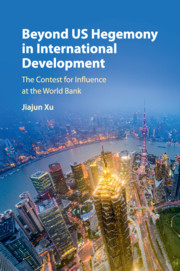Book contents
- Beyond US Hegemony in International Development
- Beyond US Hegemony in International Development
- Copyright page
- Contents
- Figures and Tables
- Foreword
- Acknowledgments
- Abbreviations
- Introduction
- 1 IDA Burden-Sharing: The Unresolved Puzzle
- 2 Three Power Plays behind the Politics of IDA Burden-Sharing
- 3 IDA in the 1960s: Hegemonic Leadership amid Bipolar Geopolitics
- 4 IDA in the 1970s: A Turbulent Era with Accelerated Burden-Shifting
- 5 IDA in the 1980s: The Rise and Retreat of the ‘Reagan Revolution’
- 6 IDA in the 1990s: The Struggle for Power and Fairness in a Unipolar World
- 7 IDA in the New Millennium: Leadership in Transition?
- 8 China’s Ascendancy: Influence from Within and Impact from Outside
- Conclusion
- Bibliography
- Index
- References
Bibliography
Published online by Cambridge University Press: 02 August 2017
- Beyond US Hegemony in International Development
- Beyond US Hegemony in International Development
- Copyright page
- Contents
- Figures and Tables
- Foreword
- Acknowledgments
- Abbreviations
- Introduction
- 1 IDA Burden-Sharing: The Unresolved Puzzle
- 2 Three Power Plays behind the Politics of IDA Burden-Sharing
- 3 IDA in the 1960s: Hegemonic Leadership amid Bipolar Geopolitics
- 4 IDA in the 1970s: A Turbulent Era with Accelerated Burden-Shifting
- 5 IDA in the 1980s: The Rise and Retreat of the ‘Reagan Revolution’
- 6 IDA in the 1990s: The Struggle for Power and Fairness in a Unipolar World
- 7 IDA in the New Millennium: Leadership in Transition?
- 8 China’s Ascendancy: Influence from Within and Impact from Outside
- Conclusion
- Bibliography
- Index
- References
- Type
- Chapter
- Information
- Beyond US Hegemony in International DevelopmentThe Contest for Influence at the World Bank, pp. 275 - 298Publisher: Cambridge University PressPrint publication year: 2016

